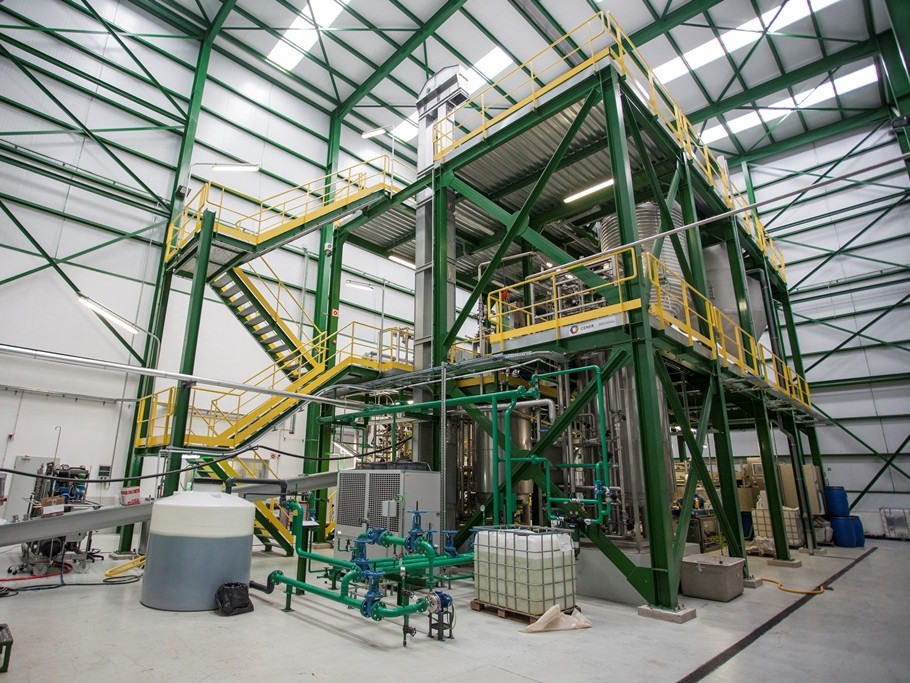Release the sugars! A valuable building block for making products from food waste
To find out more, we spoke to Inés del Campo, Senior Researcher at the Biomass Department of CENER, the National Renewable Energy Centre of Spain. What is the concept for food waste valorisation being developed in the SCALIBUR project? The aim of our work is to release and concentrate some of the valuable components from the household waste (sugars) and to transform them into high added value compounds such as biopesticides and biodegradable and compostable biopolymers for sustainable bioplastics. Can you explain the process in a bit more detail? There are a few different technologies involved: (i) A high solids enzymatic hydrolysis concept developed by CENER for the production of concentrated sugars from the organic fraction of municipal solid waste (OFMSW), using specially designed enzymatic cocktails supplied by ASA; (ii) The production of biodegradable and compostable biopolymers using the produced sugars through a bio-based process by Novamont, that will be further validated for food contact applications by ITENE; and (iii) the production of biopesticides using microorganisms, also from the sugars derived from the biowaste, using two different fermentation processes being developed by AERIS and CENER. What is the main benefit of this new concept? It contributes to the circular economy by getting valuable products from what is currently considered a waste. This should also have economic advantages for cities. Moreover, the biopolymers and biopesticides produced are biodegradable and will therefore be more environmentally beneficial than products currently on the market. How do you imagine the concept being implemented in the real world? We want to provide a new waste treatment solution for cities and regional authorities. The idea is that the OFMSW would be processed on-site to extract the sugars and other valuable products, this way avoiding contamination and/or degradation due to long-term storage and transport. The concentrated sugars will then be supplied to companies or other facilities for their conversion into high added value products. What is CENER’s role? Our Biomass Department is working to demonstrate the production of concentrated sugars from the OFMSW and also their conversion into sustainable biopesticides. This is being carried out first at pilot scale using pilot reactors and will be further replicated in a higher scale (demo) in order to produce substantial amounts of products that can be tested and validated for market applications. CENER’s activities will be carried out in its Biorefinery and Bioenergy Centre (BIO2C). This infrastructure aims to develop processes and components through R&D projects focused on pilot scale as an intermediate step towards industrial scale-up. Some of the CENER BIO2C capabilities include flexibility to handle a wide range of biomass feedstocks, ability to incorporate and test equipment from partners or third-parties into whole conversion processes and changing configurations and flexible scaling-up: from pilot to semi-industrial. What do you expect to be the greatest challenge with upscaling the process being developed in SCALIBUR? Scaling up processes from pilot to demo scale is always a challenge; it’s not linear, you cannot just increase the dosage of chemicals and size of equipment. In the case of the bioconversion processes in SCALIBUR, the use of heterogeneous feedstocks like OFMSW adds to the technical difficulty. As does the implementation of processes that involve the use of enzymes and microorganisms. But we are confident we can make it work. Watch the video at: https://youtu.be/3CwM1mMXG2Y Find out more at www.scalibur.eu/added-value-products/from-ofmsw/ and www.cener.com Image: Biochemical plant at the CENER Biorefinery and Bioenergy Centre (BIO2C). Source: CENER
Keywords
OFMSW, food waste, cities, organic waste, hydrolysis, enzymes, fermentation, biopesticides, biopolymers, bioplastics, biodegradable, compostable



